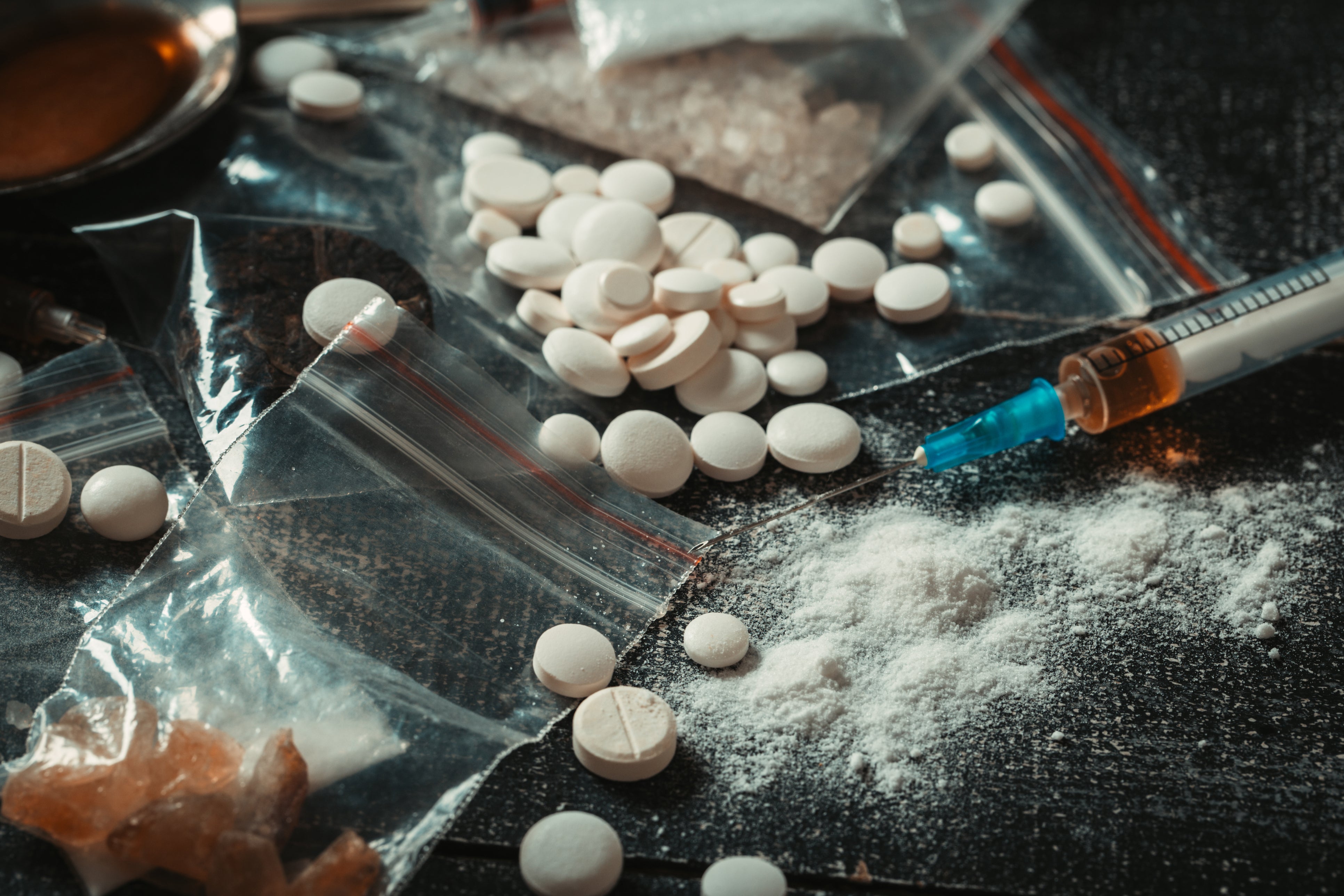The twenty drugs to be made class A by the government
Possession of Class A drugs carries a sentence of seven years inprisonment

Twenty dangerous opioids and drugs will be banned in a new crackdown announced by the Home Office.
The ban will see 15 new dangerous synthetic opioids and five other drugs become Class A drugs under the Misuse of Drugs Act 1971.
Currently possession of Class A drugs carries a sentence of up to seven years imprisonment, while offenders caught supplying can face lifetime prison sentences.
The Home Office say many of these substances are incredibly dangerous and have similar effects to heroin and fentanyl, posing a higher risk of accidental overdose.
Opioids such as heroin and fentanyl are converted to morphine when entering the brain and cause a “rush”. The use of these drugs slows heart function and effects breathing, which can be life-threatening.
Opioid deaths have long been a widespread problem worldwide, particuarly in the USA, which has seen more than 645,000 people die from overdoses since 1999, according the the US Centre for Disease Control and Prevention.
Although there is no current evidence to show these substances are prevalent in the UK, there have been some deaths linked to the drugs.
Full list of drugs that will be banned as Class As:
- metonitazene - similar to morphine but 10 times the potency
- protonitazene - a novel yellow powder synthetic opioid, typically mis-sold as Ketamine and three times more potent than fentanyl
- isotonitazene - sold as a designer drug and 500 times more potent than morphine
- butonitazene - sold as a designer drug and several times the potency of morphine
- flunitazene - Relatively less potent compared to others on this list, with similar effects to morphine
- metodesnitazene (metazene) - around the same potency as morphine
- etodesnitazene (etazene) - 70 times more potent than morphine
- N-pyrrolidino-etonitazene (etonitazepyne) - a designer drug found to be sold in Aberdeen
- N-piperidinyl-etonitazene (etonitazepipne) - 100 times more potent than morphine
- N-pyrrolidino protonitazene - found in drug seizures in Canada
- N-desethylisotonitazene - potency can be 20 more than fentanyl
- brorphine - Has been implicated in 20 deaths in the USA
The Independent could not readily obtain information on the following drugs:
- N-desethyl-etonitazene
- N-desethyl protonitazene
- ethyleneoxynitazene
Five other drugs will also be controlled as part of the recent ban, including cumyl-PeGaClone, a synthetic cannabinoid receptor agonist (SCRA) which can cause complications such as seizures and liver failure.
The ban comes as part of the government’s continued efforts to tackle the supply of dangerous drugs.
Crime and Policing Minister Chris Philp said: “These new highly dangerous substances have the potential to devastate lives, ruin families and damage local communities.
“We must be one step ahead to ensure we are stopping new drugs from plaguing our streets and endangering the lives of vulnerable people.
“Our strategy is to tackle both the illicit supply of drugs, relentlessly pursuing criminal networks, and to build a world-class treatment system to turn people’s lives around and stop the cycle of crime.”
APCC Addictions & Substance Misuse Leads, Dorset PCC David Sidwick and Durham PCC Joy Allen, said: ““We welcome tougher action to control the possession and sale of illicit drugs on our streets. The government has acted swiftly to the recommendations made by the Advisory Council on the Misuse of Drugs (ACMD) and we fully support the banning of 15 new synthetic opioids as Class A drugs.
“Combating illicit drugs is critical to reducing acquisitive and violent crime and making our streets safer.”
They added: “Although not widely prevalent in the UK, we have seen a recent rise in drug misuse deaths involving benzodiazepine and it is vital we act now to protect our communities in the future.
“Police and Crime Commissioner’s across England and Wales are working closely with health and policing partners to identify and respond to the emerging threat of synthetic opioids and other illicit substances by cutting their supply.”
Subscribe to Independent Premium to bookmark this article
Want to bookmark your favourite articles and stories to read or reference later? Start your Independent Premium subscription today.

Join our commenting forum
Join thought-provoking conversations, follow other Independent readers and see their replies